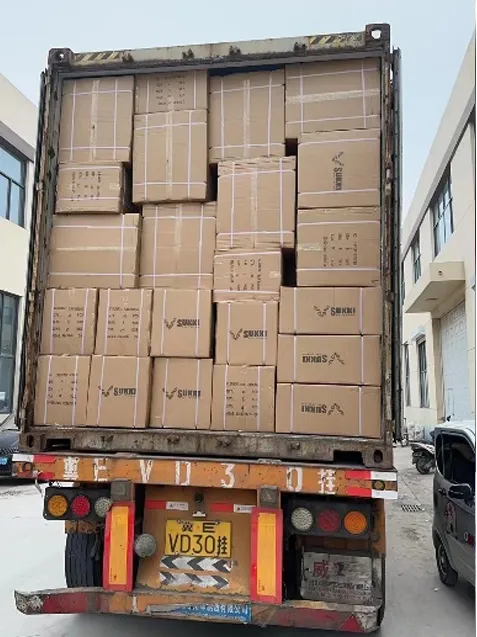solar inverter china
The Rise of Solar Inverters in China A Key Player in Renewable Energy
The world is undergoing a significant transformation towards renewable energy sources, and China is at the forefront of this shift. Among the various technologies facilitating this transition, solar inverters play a crucial role in the efficiency and effectiveness of solar power systems. As China continues to expand its solar energy infrastructure, the solar inverter industry has become a foundational element of the country's energy strategy.
What is a Solar Inverter?
A solar inverter is a device that converts direct current (DC) generated by solar panels into alternating current (AC), which is used by most household appliances and fed into the power grid. The efficiency and reliability of solar inverters are vital as they directly influence the overall performance of solar energy systems. There are primarily three types of solar inverters string inverters, central inverters, and microinverters, each serving specific needs depending on the scale and configuration of the solar installation.
China’s Solar Energy Landscape
As of 2023, China has emerged as the world's largest producer and consumer of solar energy. According to the National Energy Administration, solar power capacity in China exceeded 500 gigawatts (GW) last year, and this number is projected to rise significantly in the coming years. A substantial part of this growth can be attributed to the development of solar inverters, which have become increasingly sophisticated and efficient. Innovations in inverter technology have enabled higher energy conversion rates, better grid integration, and improved overall system performance.
The Role of Chinese Manufacturers
China is home to some of the world's leading solar inverter manufacturers, including Huawei, Sungrow, and Ginlong Technologies. These companies have invested heavily in research and development (R&D) to create cutting-edge inverter technologies that enhance the efficiency of solar power systems. For instance, Huawei's FusionSolar inverters incorporate artificial intelligence (AI) and Internet of Things (IoT) capabilities, allowing for real-time monitoring and optimization of solar energy generation.
Moreover, competition among domestic manufacturers has driven down costs, making solar energy more accessible. As the largest market for solar inverters, China has managed to reduce the price of inverters while improving their quality and reliability, making solar energy a viable option for both residential and commercial consumers.
Government Policies and Support
solar inverter china

The Chinese government has played a vital role in promoting solar energy and the development of solar inverters. Through various incentive programs, feed-in tariffs, and subsidies, the government has encouraged investment in solar power infrastructure. Policies such as the Top Runner program and 13th Five-Year Plan aim to accelerate the development of high-efficiency solar technology, including inverters.
Additionally, China’s commitment to carbon neutrality by 2060 drives further investment in renewable energy sources. The expansion of solar energy is a key component of achieving this target, and the solar inverter sector is poised to benefit from this growing focus on sustainability.
The Future of Solar Inverters in China
Looking ahead, the future of solar inverters in China appears promising. As technology continues to evolve, there are several trends that are likely to shape the industry
1. Increased Efficiency Innovations in materials and designs will lead to higher efficiency rates for solar inverters, enabling them to convert more energy from solar panels into usable electricity.
2. Smart Technologies The integration of AI and big data analytics will allow for improved energy management and predictive maintenance, enhancing the reliability of solar energy systems.
3. Storage Solutions With the growing importance of energy storage solutions, hybrid inverters that can manage both solar power and battery storage will gain popularity, allowing consumers greater flexibility and control over their energy use.
4. Global Expansion As demand for renewable energy grows worldwide, Chinese manufacturers are looking to expand their market presence outside of China, tapping into emerging markets where solar energy is on the rise.
Conclusion
The solar inverter industry in China is not only a critical component of the country's renewable energy strategy but also a driving force behind global advancements in solar technology. With ongoing innovations, strong government support, and an increasingly competitive market, the solar inverter sector is set to thrive, playing a pivotal role in the transition to a sustainable energy future. As the world looks to combat climate change, China's position in the solar inverter market will likely influence the global energy landscape for years to come.
-
String Solar Inverter: The High-Efficiency Solution for Smart Solar EnergyNewsJul.14,2025
-
Revolutionizing Rooftop Energy with the Power of the Micro Solar InverterNewsJul.14,2025
-
Power Independence with Smart Off Grid Solar Inverter SolutionsNewsJul.14,2025
-
On Grid Solar Inverter: Powering the Future with Smart Grid IntegrationNewsJul.14,2025
-
Monocrystalline Solar Panels: High-Efficiency Power for the Future of Clean EnergyNewsJul.14,2025
-
Bifacial Solar Panel: A Smarter Investment for Next-Generation Energy SystemsNewsJul.14,2025







